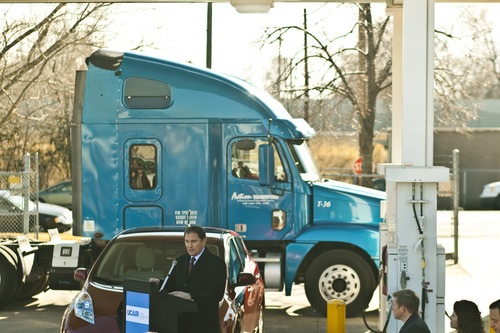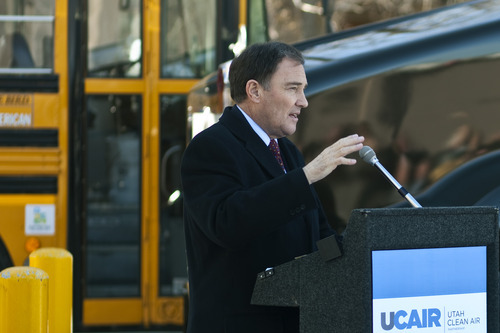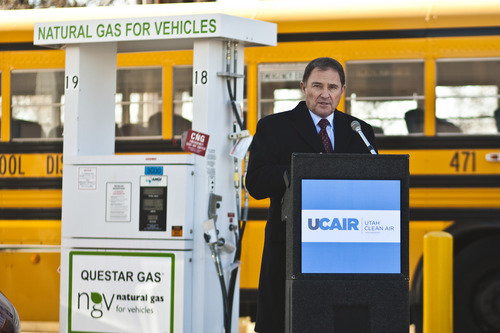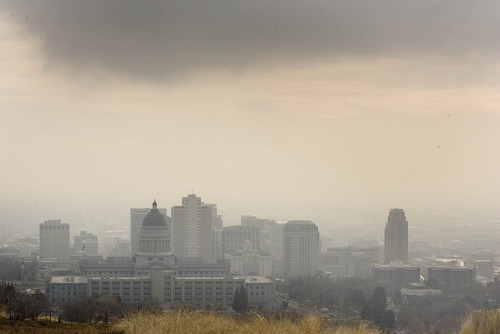This is an archived article that was published on sltrib.com in 2012, and information in the article may be outdated. It is provided only for personal research purposes and may not be reprinted.
Gov. Gary Herbert ended the news conference on the state's new air-quality initiative with a call to action and a raised fist.
"Together," he boomed, "we can make it happen."
And, while he still is the governor Utahns have come to know and expect — wearing a dark business suit, touting free-market capitalism and warning of the heavy hand of government — there was something notably different. It was the first time the state's chief executive has put cleaning up the air on the top of the to-do list.
And that has many Utahns genuinely encouraged — even if Herbert's UCAIR campaign is limited so far to an educational website where individuals, businesses and organizations statewide are encouraged to take a pledge to help improve air quality.
Cherise Udell, who founded Utah Moms for Clean Air a few years ago because of the pollution, said she was pleased the governor is joining the cause.
"I am very hopeful," she said, noting that everyone has a personal stake in making the air healthier.
Terry Marasco, of the Utah Clean Air Alliance, reflected on the strides made in just a few years to raise awareness among the public and leaders like Herbert.
"The problem has been brought to his desk," Marasco said, "and he's paying attention."
Flanking Herbert Tuesday were representatives of the Salt Lake Chamber of Commerce, the health advocacy group Breathe Utah and the planning organization, the Wasatch Front Regional Council. In the audience were architects of the new clean-air campaign, Amanda Smith and Alan Matheson, Herbert's two top advisers on energy and environment, as well as representatives from a variety of Utah companies.
Herbert said it is important to address Utah's air-quality problems before the federal government forces its own solutions. He also said it is time for finger-pointing to stop, since everyone is responsible for the problem — even families whose driving and at-home practices are responsible, he said, for about one-third of overall air pollution.
"The point is that all of us, every single one of us, have an opportunity to help clean up the air."
Jonathan E. Johnson, president of Overstock.com and head of the Salt Lake Chamber's air-quality task force, said air pollution has economic costs, such as scaring away prospective businesses and driving away workers.
"Utah businesses want to be good citizens," he said, noting that the Chamber has its own best-practices program. "We want to help keep the air clean."
Breathe Utah Founder Michelle Hofmann, a pediatrician, listed the health impacts, such as the toll on 240,000 asthma sufferers, people with heart and lung disease, and even those just worried about exercising in polluted air. She asked audience members to raise a hand if they or a loved one was affected, and most hands went up.
"We all contribute," she noted. "We're all suffering. We all need to work on solutions."
Herbert, whose hand was one of those raised, said pollution was an issue he has found hard to avoid when he looks out from his office over the Salt Lake Valley on those 25 days a year when the air is especially foul.
"On gunky days," he said, "I see a lot of gunk."
Twitter: @judyfutah —
Herbert's clean-air campaign
O Learn more about Utah's pollution problem and its clean-air efforts at > http://www.ucair.utah.gov.









